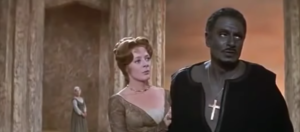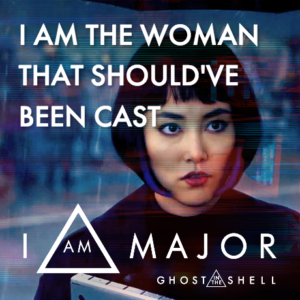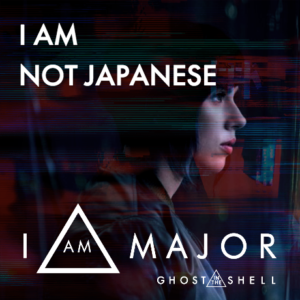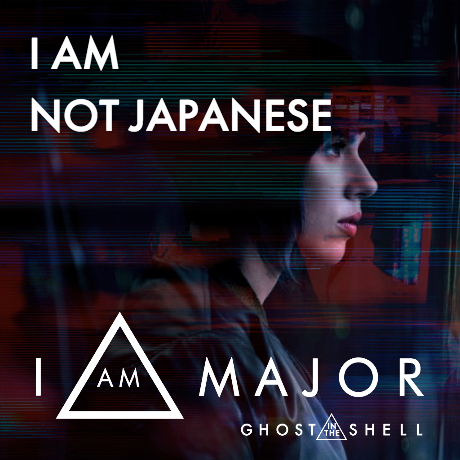Ben Affleck. Johnny Depp. Emma Stone. Scarlet Johansson. What do these actors all have in common, despite the prestige in their art form? Whitewashing.
Each of the following actors, despite being considered Caucasian, has played a character that is not originally portrayed as white.
In 2012, Ben Affleck portrayed Hispanic extractor Tony Mendez in “Argo.” Johnny Depp played Native American character Tonto in the 2013 Disney revival of “The Lone Ranger.” “Aloha,” the 2015 movie based on true events, has Emma Stone playing the native Hawaiian Allison Ng.
Finally, Scarlet Johansson portrayed Major in “Ghost in the Shell,” an adaptation of the Japanese manga series by the same title. “Ghost in the Shell” opened Friday.
When it was announced “Ghost in the Shell” would receive a Hollywood adaptation, fans were initially expectant that casting would include a Japanese — or at least Asian — lead character. Then, in late 2014 and early 2015, Johansson’s part as lead was set. And there was a frustrated, yet unsurprised, sigh from the same fans who thought maybe, just maybe, Hollywood would change its tune.

In 1965, white actor Laurence Olivier portrayed the Moorish Shakespearean character Othello, using blatant blackface to darken Olivier’s skin.
Whitewashing has been a problem in Hollywood since the beginning of the movie boom. In 1944, Katherine Hepburn played the Chinese character Jade in “Dragon Seed.” Her makeup artists even went so far as to alter her eyes to give her the appearance of being Asian.
In the 1961 classic “Breakfast at Tiffany’s,” Mickey Rooney played a blatantly stereotypical Japanese character Mr. Yunioshi.
And let’s not get started on the blackface present in the 1965 adaptation of Shakespeare’s “Othello,” in which Laurence Olivier skin is darkened to portray the Moorish character.
But modern filmmaking is different than that of 50 years ago, right?
Not quite.
Even “progressive” services like Netflix (who made waves in their portrayal of polyamorous and LGBTQ+ characters in their original series “Sense8” and whose series “One Day at a Time” portrays an LGBTQ+ Latina character) are facing criticism due to their use of white actors to play Asian characters.
On March 22, Netflix released the trailer for their upcoming adaptation of the Japanese manga “Death Note” in which Nat Wolff (“Paper Towns”) is playing Light Yagami.*
While actors, fans and activists have spoken out about Hollywood’s lack of representation, the cultural icon and media giant continues to cast white actors to play non-white roles.
This is frustrating for moviegoers and actors alike.
Actress Ming-Na Wen (“Agents of S.H.I.E.L.D.”) posted on her Twitter page about the casting of Johansson in “Ghost in the Shell:” “Nothing against Scarlett Johansson. In fact, I’m a big fan. But everything against this whitewashing of an Asian role.” Fellow actress Constance Wu (“Fresh Off the Boat”) followed suit, posting: “It’s like a way to reduce race to mere physical appearance as opposed to say culture, social experience, identity, history.”
While the outrage has been heard, there still doesn’t seem to be much change occurring.
“There are going to be people who wave flags, but ultimately it comes down to what sells this film and Scarlett Johansson has done it before and she can do it again,” senior box-office analyst for Exhibitor Relations Jeff Brock said in an interview with USA Today, referring to the outrage around Johansson’s character in “Ghost in the Shell.”

Fans used the website iammajor.me to speak out about the film, using actual Asian actress Rinko Kikuchi to call attention to who should have been cast in Scarlet Johansson’s role.
To speak out against “Ghost in the Shell,” many fans used the marketing techniques of the film to their own advantage. On the website iammajor.me, people are encouraged to create their own “I Am” statement and upload an accompanying image. Images, such as the ones pictured here, where characteristic of the campaign as a way to call attention to the whitewashing in the film.

Despite being Caucasian, Scarlet Johansson was cast to play Japanese character Major in the upcoming adaptation of the manga series, “Ghost in the Shell.”
While producers of whitewashed films are quick to defend their actions, there doesn’t seem to be an active effort to solve the problem. They’re quick to cite the financial success of casting already popular actors — like Johansson and Wolff — but with box office bangs like “Pacific Rim” (2013) and “Get Out” (2017), it’s a flat argument.
As consumers of popular culture, we should demand more from the producers of our cultural agents to represent all people fairly and equally.
By refusing to see films that promote whitewashing and by creating characters that represent a whole rather than a part, we can create change in modern Hollywood and hopefully prevent whitewashing from becoming an unfortunate commonality.
*When this story was originally published, the author misstated that Netflix series “Iron Fist” was a representation of whitewashing. However, in the original comic, Iron Fist is not Asian. Fans of the series believed that, to modernize the adaptation, Iron Fist should be portrayed by an Asian character. Therefore, the source of fan disappointment is not whitewashing, but that the character should instead be played by an Asian character. This correction was published in The Spectrum’s April 6, 2017 edition.
